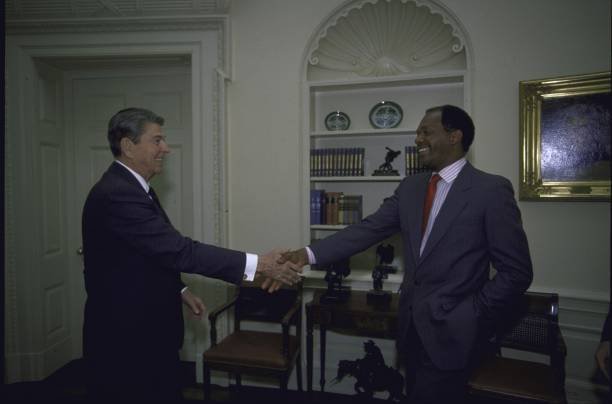
In 1972, Barry won his first election as the President of the D.C. School Board.
Two years later in 1974, Barry won a city-wide, at-large seat on the District’s City Council–the very first election under Home Rule. Barry served as Chair of the powerful Finance Committee, and co-sponsored legislation which vastly expanded the Office on Aging staff and budget supporting the needs of a constituency with whom he would forge an unbreakable bond.
In 1977, while serving on the Council, the Hanafi Movement gunmen laid siege on the District Building (one of 3 buildings). Then Council member Barry walked into the hallway after hearing a commotion as was hit by a ricocheted shotgun pellet which lodged just about his heart. He was taken out through a window and rushed to a hospital. Maurice Williams, a 24- year old radio reporter from WHUR-FM who stepped off the elevator into the crises was killed.
On November 6, 1978, Barry rose to national prominence when he was elected the second Mayor of the Nation’s Capital. He was sworn into office on January 2, 1979 by the first Black U.S. Supreme Court Justice, Thurgood Marshall.
After becoming Mayor, Barry—always the visionary immediately crafted the Summer Youth Employment Act of 1979, creating thousands of jobs for District youth. That program has provided hundreds of thousands of jobs to D.C. youth, many of whom have become leaders of industry, elected officials, entrepreneurs and professionals throughout the country.
In 1982, Barry was re-elected Mayor by a landslide– garnering 82 percent of the vote.
In 1984, Barry rose to international prominence when he nominated his longtime friend and fellow activist, Reverend Jesse Jackson, Sr. for President of the United States at the Democratic National Convention. It was there that he took center stage, and delivered a rousing opening speech for Jackson.
In 1986, Barry was once again re-elected to an unprecedented third term as Mayor.
In 1990, Mayor Barry was arrested in a sting operation and in 1991 was subsequently sentenced to a six-month prison term.
Upon his return to politics, in 1992 he was elected to the Ward 8 City Council seat by an overwhelming majority.
In 1994, Barry kicked off his fourth run for mayor and won. Defying the naysayers and pundits, he successfully ran on a platform of redemption and his record of service to the people.
1995 – Million Man March (More Needed)
After retiring from Mayoral politics in 1999—completing 16 years of service, Barry returned to win the Ward 8 City Council seat in November 2004. He held that office until his demise on November 23, 2014. His likewise served as a Council member for 16 years.
As the Ward 8 Council member, he secured over $350 million to modernize schools East of the River. Barry was a courageous champion for senior citizens, Ward 8 minority businesses, affordable housing, and hiring practices that afforded local residents priority consideration.
“Mayor Marion Barry embodied that DC spirit of never letting a setback become a knockout, and always found ways to bring opportunity to DC residents”. …Mayor Muriel Bowser, November 12, 2020, on the occasion of the Dedication of One Judiciary Square Building as the Marion S. Barry Building.







